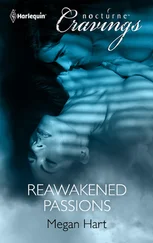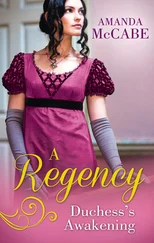Duchess - Portia; Or, By Passions Rocked
Здесь есть возможность читать онлайн «Duchess - Portia; Or, By Passions Rocked» — ознакомительный отрывок электронной книги совершенно бесплатно, а после прочтения отрывка купить полную версию. В некоторых случаях можно слушать аудио, скачать через торрент в формате fb2 и присутствует краткое содержание. Жанр: foreign_antique, foreign_prose, foreign_sf, на английском языке. Описание произведения, (предисловие) а так же отзывы посетителей доступны на портале библиотеки ЛибКат.
- Название:Portia; Or, By Passions Rocked
- Автор:
- Жанр:
- Год:неизвестен
- ISBN:нет данных
- Рейтинг книги:3 / 5. Голосов: 1
-
Избранное:Добавить в избранное
- Отзывы:
-
Ваша оценка:
- 60
- 1
- 2
- 3
- 4
- 5
Portia; Or, By Passions Rocked: краткое содержание, описание и аннотация
Предлагаем к чтению аннотацию, описание, краткое содержание или предисловие (зависит от того, что написал сам автор книги «Portia; Or, By Passions Rocked»). Если вы не нашли необходимую информацию о книге — напишите в комментариях, мы постараемся отыскать её.
Portia; Or, By Passions Rocked — читать онлайн ознакомительный отрывок
Ниже представлен текст книги, разбитый по страницам. Система сохранения места последней прочитанной страницы, позволяет с удобством читать онлайн бесплатно книгу «Portia; Or, By Passions Rocked», без необходимости каждый раз заново искать на чём Вы остановились. Поставьте закладку, и сможете в любой момент перейти на страницу, на которой закончили чтение.
Интервал:
Закладка:
Duchess
Portia; Or, By Passions Rocked
CHAPTER I
"A child of our grandmother Eve, a female; or, for thy more sweet understanding, a woman." – Love's Labors Lost.
The gates are thrown wide open, and the carriage rolls smoothly down the long dark avenue, beneath the waving branches of the tall elms and the copper beeches, through which the dying sun is flinging its parting rays.
The horses, sniffing the air of home, fling up their heads and make still greater haste, until presently, rounding the curve, they draw up before the hall door.
It stands open, and on the high, stone steps that lead to it, a very pretty girl looks down upon the carriage from under her palm, with a face eager and expectant. When she has barely glanced at it, she says, "Ah!" in a tone of deep satisfaction, and running down the steps and over the gravel, turns the handle of the carriage door and looks anxiously at its occupant.
"You have come," she says, cheerily. "I was so afraid something might have prevented you."
The person she addresses – a girl about two years older than herself, says:
"Yes, I have come," in a tone slow and sweet, almost to languor.
" So glad," says the pretty girl, with a smile that must be one of her sweetest charms, it is so full of life and gaiety; "come out of this dreadful old sarcophagus and upstairs with me; I have your tea in your own room for you."
Miss Vibart, stepping out of the brougham, follows her hostess into the house, through the grand old hall, and up the wide, oak staircase, into a room huge and old-fashioned – but delicious and cozy, and comfortable to the last degree.
Having cast one hasty glance round the apartment, Miss Vibart turns to her young hostess —
"You are Dulcinea? isn't it?" she says, questioningly.
"Yes, I am Dulcinea as a rule – (may I be your maid, just for once – you will be so much happier without your hat) – but I have so many other names, that it takes me all my time to remember which one I really belong to. Uncle Christopher calls me Baby! and Mark Gore, when he is here, calls me Duchess, and Dicky Browne calls me Tom, and Roger calls me – I really quite forget what it is Roger calls me," with a slight shrug of her shoulders.
"Is Dicky Browne your fiancé? " asks Miss Vibart, uncertainly; "I know you are engaged to somebody; Auntie Maud told me that."
"Dicky Browne! Oh, no!" Then, with the gayest little laugh in the world, "If you could only see Dicky Browne! He couldn't, by any possibility, be anybody's fiancé! You mean Roger, I suppose." But, with a quick frown and a touch of petulance, "Don't let us talk about him . He is such a worry, and has been making himself so exceedingly unpleasant all the morning!"
Miss Vibart stares, forgetting her usually very charming manners for the moment, and then drops her heavily-fringed lids over her eyes.
"By-the-by," says Dulce, breaking in upon what threatens to be an awkward pause, "how d'ye do? I don't believe I have said that yet." Her whole tone and expression have changed as if by magic; the suggestion of ill-temper is gone; the former vivacity re-asserts itself. She lays her hands upon her visitor's shoulders with a light, caressing gesture, and leans towards her. "I shall give you a little kiss for your welcome, my dear cousin, if I may," she says, very prettily.
Portia Vibart, acknowledging her grace, tells herself this new cousin will suit very well, and returns her soft embrace with some warmth. She is feeling tired, used up, ennuye to the last degree; even the two or three weeks she has had in town have been too much for her, and she has come down to her uncle's house nearly ready to confess to herself that she is seriously ill. Here, in the stillness, in this great room, with the elms swaying to and fro outside her windows, and the distant cawing of the rooks in the branches high up out of sight, she feels rest, and comfort, and a curious longing, that has a strange pleasure in it, to stretch out her arms and sigh deeply and contentedly.
"Sit in this chair, and rest a little before thinking of taking off anything else," says Dulce; "I shall pour out your tea."
She goes, with the quick undulating step that belongs to her, to a small, round table, and makes a little fuss over the delicate fat little cups that stand on the tray.
"You take sugar?" she asks, in a moment or two.
"No, thank you," says Portia, slowly; she is looking at her cousin still, whose hair is as nearly red as it can be, without being exactly so; it comes very, very close to it, but it is only the rude who have ever called it so.
"But of course not," says Dulcinea. "One might know that by looking at you. It isn't a good thing to take sugar in one's tea nowadays, is it? – it almost touches on immorality;" she is standing with the sugar-tongs poised in her right hand, and is glancing at Portia over her shoulder. " I take it, you know – any amount of it, and I have yet the grace to be ashamed of myself afresh, at every new lump. Dicky Browne likes it, too."
"Who is Dicky Browne?" demands Portia, suddenly: if she is going to live in this rather mixed household, she had better learn some particulars about the inhabitants at once.
"Not know Dicky? it argues yourself unknown. He is our celebrity. He is really immensely clever, about always doing the wrong thing, and indeed is inestimable in most ways. He is your cousin, too, as much as he is mine, which really," declares she airily, "isn't much. But he is such a pet all through that we magnify the third-cousinship into a first. He rides very straight and smokes the very prettiest cigarettes, and he is such a fool!"
Miss Vibart is amused. "What a very charming description," she says, with the low laugh she allows herself; "he sounds like something I have seen somewhere, and he certainly would be a treasure to Byron."
"Lord Byron?" asks Dulce, with lifted brows; "I don't myself think he would show off much as a Conrad, or a Giaour, or a Lara."
"I rather fancy I was thinking of the man who writes plays," says Miss Vibart, mildly. "Is he here now?"
"Yes. He spends most of his time here. Both he and Roger are consumed with a desire to see you. You must know," says Dulcinea, laughing over her cups at her cousin, "that a breath from the outer world came to us, whispering of your success in town, and how every one raves of your beaux yeux , and your beauty generally."
"Who wafted so insane a breath as that?" asks Portia, with a suppressed smile.
"Mark Gore. He puts in a good deal of his time here, too."
"Mark Gore never talks anything but the very utterest nonsense," says Portia with a faint blush. "No one minds him. I shall be quite afraid to go down-stairs to present myself to Dicky Browne after all you have said. Consider his disappointment."
"I shan't," says Dulce, calmly, "and you needn't fear him. He is only Dicky. Well, it is five now, and we dine at seven. I shall send your maid to you, and I shall call back for you in an hour, if you wish, to bring you down stairs with me. But, perhaps – "
"Oh! please do," says Portia, graciously. "I shall be just a little strange at first, shan't I?"
"Strange here? Indeed no," says Dulcinea, earnestly. "Nobody knows the meaning of that word in this old Court. We all get friends with each other at once, and I don't think we ever fall asunder again. Now at six do try to be ready, and I will take you to see Uncle Christopher, who is sure to be in just then."
"I shall be ready," says Portia, with determination.
CHAPTER II
"The first and the simplest emotion which we discover in the human mind is curiosity." – Burke.
Интервал:
Закладка:
Похожие книги на «Portia; Or, By Passions Rocked»
Представляем Вашему вниманию похожие книги на «Portia; Or, By Passions Rocked» списком для выбора. Мы отобрали схожую по названию и смыслу литературу в надежде предоставить читателям больше вариантов отыскать новые, интересные, ещё непрочитанные произведения.
Обсуждение, отзывы о книге «Portia; Or, By Passions Rocked» и просто собственные мнения читателей. Оставьте ваши комментарии, напишите, что Вы думаете о произведении, его смысле или главных героях. Укажите что конкретно понравилось, а что нет, и почему Вы так считаете.












